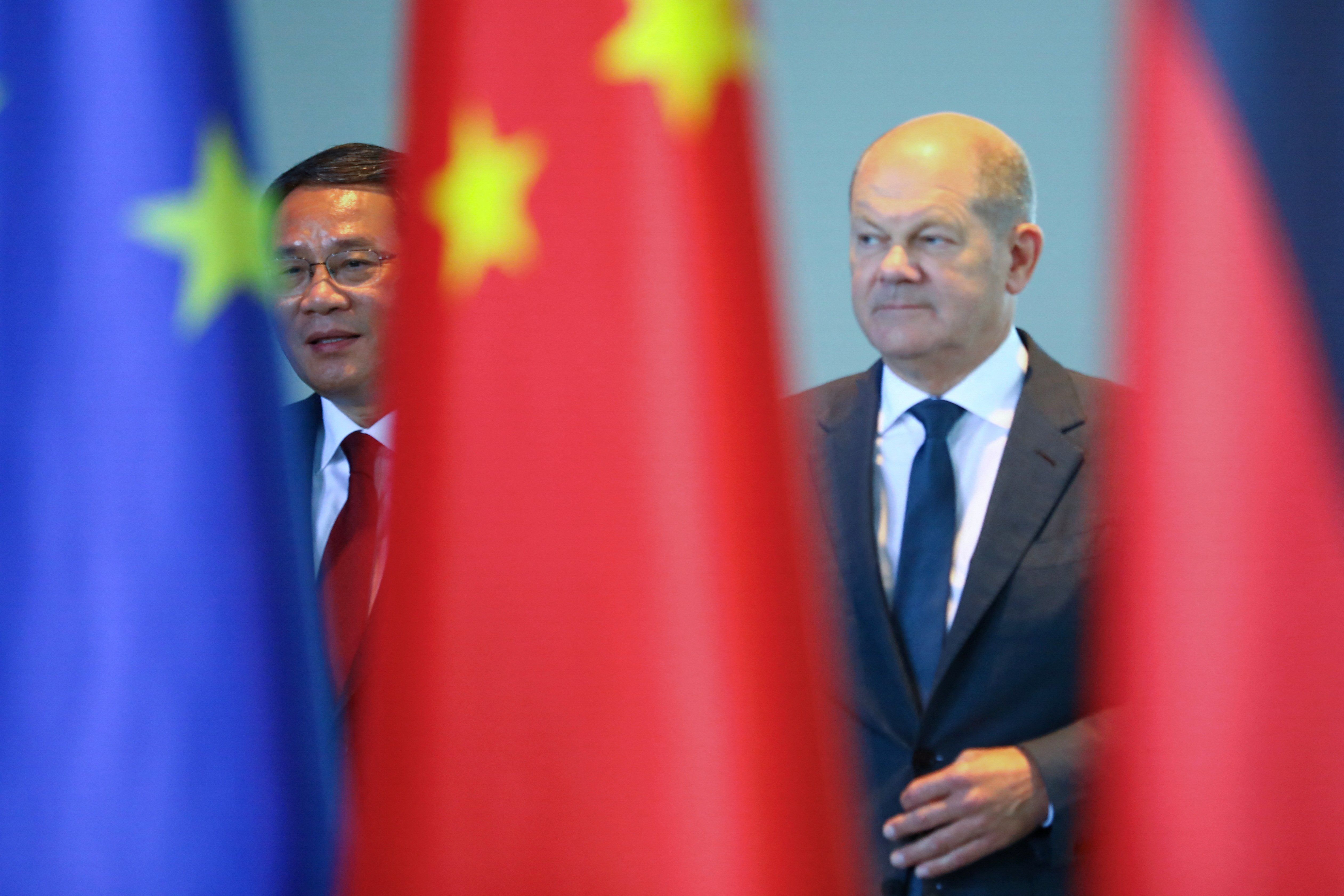REUTERS/Nadja Wohlleben
China’s Premier Li Qiang, the country’s highest-ranking public official after President Xi Jinping, met in Berlin on Tuesday with German Chancellor Olaf Scholz. Beyond the predictable diplomatic choreography, this visit underlines several important realities.
First, Germany (and Europe generally) needs strong commercial relations with Beijing. After all, China is Germany’s largest trade partner, and Europe’s post-COVID economy remains sluggish. Germany’s national security strategy describes China as both a competitor and a “systemic rival,” particularly when it comes to Beijing’s relations with Russia and its views of Western leadership in international institutions more generally. But Germany also explicitly recognizes China as a “partner,” an acknowledgment of economic realities.
Second, China needs Europe, and Germany is still Europe’s largest economy. China’s own post-COVID economic lethargy means all-important trade ties must be protected, especially in moments where stresses like differences over the war in Ukraine threaten to poison European attitudes toward Xi’s government. We should not “equate interdependence with insecurity,” Li told German CEOs on Monday. “Lack of cooperation is the biggest risk” for both of us, he added.
Finally, the world needs China to help end the war in Ukraine. Scholz’s call for China to use its influence with Russia to help end the war underlines a recognition in Europe that when Russia and Ukraine finally enter negotiations to end the war, Beijing has the most to offer as a mediator. China can help Russia cope with isolation from the West, and it can offer billions for Ukraine’s reconstruction, money that won’t have to come from Europe.
Next, Premier Li arrives in France for a financial summit hosted by French President Emmanuel Macron on Thursday and Friday.
